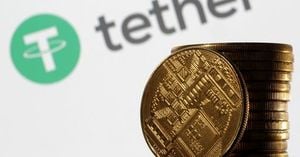In a shocking revelation that has sent ripples through India’s startup ecosystem, brothers Anmol and Puneet Singh Jaggi, promoters of Gensol Engineering Ltd and the electric vehicle (EV) cab service BluSmart, have been accused of diverting a staggering ₹262 crore (approximately $31.5 million) in loaned funds intended for the procurement of electric vehicles. This money, instead of being used to enhance the company’s green mobility initiatives, was allegedly funneled into personal indulgences and related-party entities, raising serious questions about the integrity of the startup sector.
The Securities and Exchange Board of India (SEBI) issued an interim order on April 15, 2025, detailing the Jaggi brothers’ misuse of funds. According to the regulator, the funds were primarily sourced from government-owned lending agencies meant to finance the acquisition of 1,700 electric cars for BluSmart, which has positioned itself as India’s first and largest zero-emission ride-hailing service.
SEBI’s investigation commenced in June 2024, following a complaint regarding stock manipulation and fund diversion. The findings are alarming: the brothers allegedly used complex financial transactions to misappropriate funds for personal expenses, including a luxury apartment in Gurugram’s upscale DLF project, The Camellias, valued at ₹43 crore (about $5.3 million). The purchase was made under the guise of a corporate entity, further complicating the financial web.
As the scandal unfolded, Gensol’s stock plummeted by 5% on April 16, hitting a lower circuit limit at ₹123. This marks a staggering 84% drop in share value since the beginning of 2025, reflecting the growing unease among investors.
Gensol had initially planned to procure 6,400 electric vehicles for ₹830 crore (approximately $102 million) to lease to BluSmart. However, as of February 2025, only 4,704 vehicles had been purchased for ₹568 crore, leaving an unexplained gap of ₹262 crore. This discrepancy has raised red flags about the company’s financial practices.
Further investigations revealed that Gensol had falsified documents from the Indian Renewable Energy Development Agency (IREDA) and the Power Finance Corporation (PFC) to conceal a loan default first recorded on December 31, 2024. Despite these defaults, Gensol continued to present misleading statements to credit rating agencies, falsely certifying that there were no delays in servicing loans.
SEBI’s order indicates that the Jaggi brothers utilized a New Delhi-based EV supplier, GoAuto, to route ₹50 crore from the loan to Capbridge Ventures LLP, which purchased the luxury apartment on behalf of their mother. Additionally, ₹39 crore was transferred from another related-party entity, Wellray Solar Industries, to the Jaggi brothers themselves, with ₹26 crore going to Anmol and ₹13 crore to Puneet. These funds were then allegedly used for various personal expenses, including a ₹26 lakh golf set from TaylorMade and substantial transfers to family members.
Moreover, Gensol misled investors by claiming to have received pre-orders for 30,000 EVs at the Bharat Mobility Global Expo in January 2025. However, SEBI found that these were merely Memoranda of Understanding (MOUs) with no binding commitments, further misrepresenting the company’s operational status.
The situation worsened for BluSmart, which has now suspended services in major cities including Mumbai, Delhi NCR, and Bengaluru, with no available time slots until May 7, 2025. This suspension follows SEBI’s order and reflects the operational impact of the ongoing investigations. Employees of BluSmart have also expressed concerns over delayed salary payments, with assurances from Anmol Jaggi that all dues would be cleared by the end of April.
In light of these developments, the future of both Gensol and BluSmart remains uncertain. The Jaggi brothers have been barred from participating in the securities market until further notice, and a forensic audit has been mandated to scrutinize the company’s financial records. This situation serves as a stark reminder of the importance of accountability and transparency in the rapidly evolving startup landscape.
As the dust settles on this unfolding scandal, it raises critical questions about the sustainability of India’s burgeoning startup ecosystem. The Jaggi brothers, once celebrated figures in the green mobility sector, now face severe repercussions that could tarnish their legacy and impact the broader industry. The SEBI’s findings underscore a pressing need for stricter regulatory oversight to prevent similar occurrences in the future.
In a broader context, this incident highlights the risks associated with unchecked entrepreneurial zeal where the pursuit of innovation can sometimes overshadow ethical considerations. As India aims to position itself as a leader in the electric vehicle market, the integrity of its startups will be paramount in maintaining investor confidence and fostering a culture of innovation that is both responsible and sustainable.







